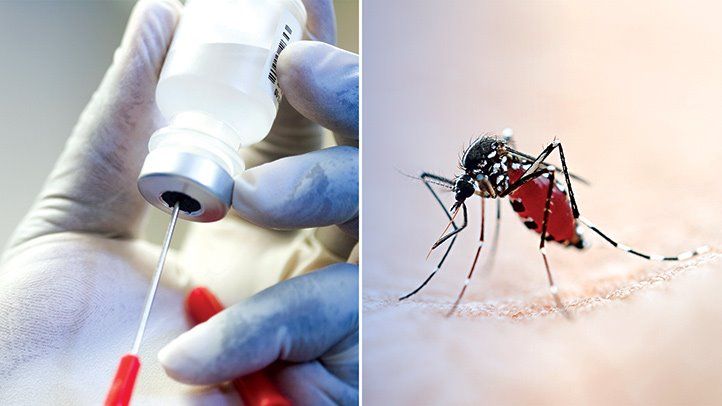
Malaria Vaccine: A Big Advance Against a Major Child Killer
Malaria, a deadly mosquito-borne disease caused by the Plasmodium parasite, has been a significant global health threat for centuries. It disproportionately affects children in sub-Saharan Africa, where they are most vulnerable to its devastating consequences. However, in recent years, there has been a significant breakthrough in the fight against malaria: the development of a promising malaria vaccine. This vaccine represents a monumental advance in the battle against this major child killer, offering hope for a future where malaria is no longer a life-threatening menace.

The Burden of Malaria
Malaria is a major public health concern, causing an estimated 229 million cases and 409,000 deaths in 2019, with children under five years old being the most susceptible group. The disease is transmitted through the bite of infected female Anopheles mosquitoes and primarily affects regions with limited access to healthcare, clean water, and effective prevention measures. Malaria’s symptoms, including fever, chills, fatigue, and anemia, can be particularly severe in children, leading to hospitalizations and, all too often, death.
The Struggle for Effective Prevention
Over the years, various methods have been employed to combat malaria, including the use of bed nets, insecticide spraying, and antimalarial drugs. While these interventions have had some success in reducing the burden of the disease, they have not proven to be comprehensive solutions. Bed nets can be ineffective if not properly used, insecticides can lose their potency, and drug-resistant strains of the parasite have emerged, making treatment less effective.
The Promise of the Malaria Vaccine
The development of a malaria vaccine has long been an elusive goal in the field of infectious diseases. In 2021, a major breakthrough was achieved with the approval of the RTS, S/AS01 vaccine, also known as Mosquirix, by the World Health Organization (WHO). This vaccine, developed by GlaxoSmithKline (GSK) in partnership with PATH Malaria Vaccine Initiative (MVI), has provided new hope in the fight against malaria.
How the Malaria Vaccine Works
The RTS, S/AS01 vaccine works by targeting the Plasmodium falciparum parasite, which is the deadliest species of the malaria parasite. It stimulates the immune system to produce antibodies against the parasite, preventing it from infecting the liver and subsequently the bloodstream, where it can cause severe illness. This groundbreaking approach represents a significant step forward in malaria prevention.

Effectiveness and Impact
Clinical trials have shown that the RTS, S/AS01 vaccine is effective in preventing malaria in young children and infants, who are at the highest risk of severe disease and death. In a large-scale trial conducted in seven African countries, the vaccine demonstrated a substantial reduction in the incidence of clinical malaria in children aged 5 to 17 months. While the vaccine’s effectiveness wanes over time, it still provides significant protection against severe malaria.
Challenges and Ongoing Research
While the malaria vaccine represents a significant advance, challenges remain in its deployment and long-term efficacy. The vaccine requires a four-dose schedule, making it more logistically complex than other childhood vaccines. Additionally, there are concerns about the duration of protection and the potential for the parasite to evolve resistance to the vaccine.
Researchers are actively working on addressing these challenges and are developing next-generation malaria vaccines with improved efficacy and longer-lasting protection. These efforts are crucial in the ongoing fight against malaria, as the parasite has a remarkable ability to adapt and evolve.
Global Efforts and Funding
Global organizations, governments, and philanthropic foundations have recognized the importance of malaria vaccination and have committed substantial funding to support its implementation. The Global Fund to Fight AIDS, Tuberculosis, and Malaria, the Bill and Melinda Gates Foundation, and the United Nations’ Roll Back Malaria Partnership have all played instrumental roles in advancing malaria vaccine research and deployment.

Conclusion
The development and deployment of the malaria vaccine represent a monumental advance in the battle against a major child killer. Malaria, which has plagued humanity for centuries, is responsible for a significant burden of disease and death, especially among children in resource-poor regions. The RTS, S/AS01 vaccine, along with ongoing research into improved vaccines, offers hope for a future where malaria is no longer a life-threatening menace.
While challenges remain, the commitment of global organizations and the dedication of researchers and healthcare workers provide optimism that malaria’s grip on vulnerable populations can be significantly loosened. The malaria vaccine is a shining example of the power of science and international collaboration to address pressing global health challenges. As we move forward, continued support and investment in malaria research and vaccination programs are essential to realizing a malaria-free world, particularly for the children who are most at risk.



